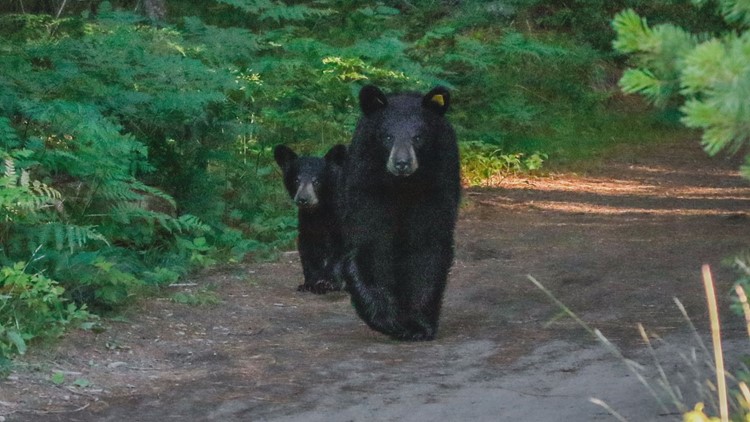BUFFALO, N.Y. — The New York State Department of Environmental Conservation made a Facebook post on Monday to share the upcoming season of increased black bear activity in the area.
In their post the caption reads, "New York’s black bears are starting their seasonal increase in activity while in search of food before winter" and "bears are foraging up to 20 hours a day."
The full Facebook post can be found attached below.
New York State DEC also shared links directly to BearWise, a program to help people coexist with bears, and to the DEC's Become BearWise page, which offers safety tips and bear basics in partnership with BearWise.
At-Home BearWise Basics from the DEC offers tips to avoid conflict with bears altogether. Following the at-home basics can help reduce the likelihood of human-bear conflict in neighborhoods.
Some of the advice listed includes:
- Never feed or approach bears
- Secure outdoor food, garbage and recycling
- Remove bird feeders when bears are active
- Never leave pet food outside
- Clean and store grills and smokers
- Alert neighbors when a bear is spotted
Black bears have a natural fear of humans, according to the DEC. Yet, they can still act or become aggressive if surprised, approached, or emboldened by human food sources. The DEC BearWise safety tips are aimed to help keep people, pets, livestock, and bears safe in bear country.
BearWise provides detailed articles for many 'how to' safety tips related to bear encounters.
Some of the explanations include:
The DEC also has a Black Bear Response Manual which outlines the response alternatives that the DEC may take to combat human-bear conflicts.
If you continue to experience a human-bear conflict, even after following the BearWise basics, contact your regional DEC wildlife office for guidance and assistance.



